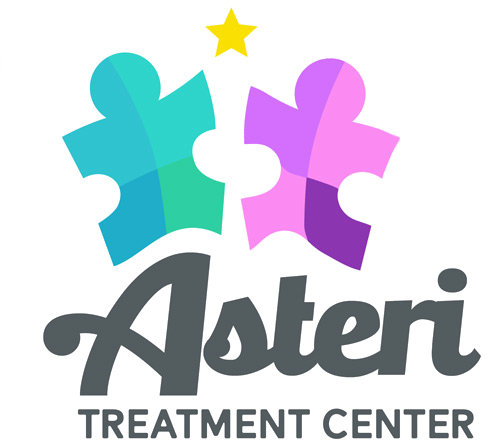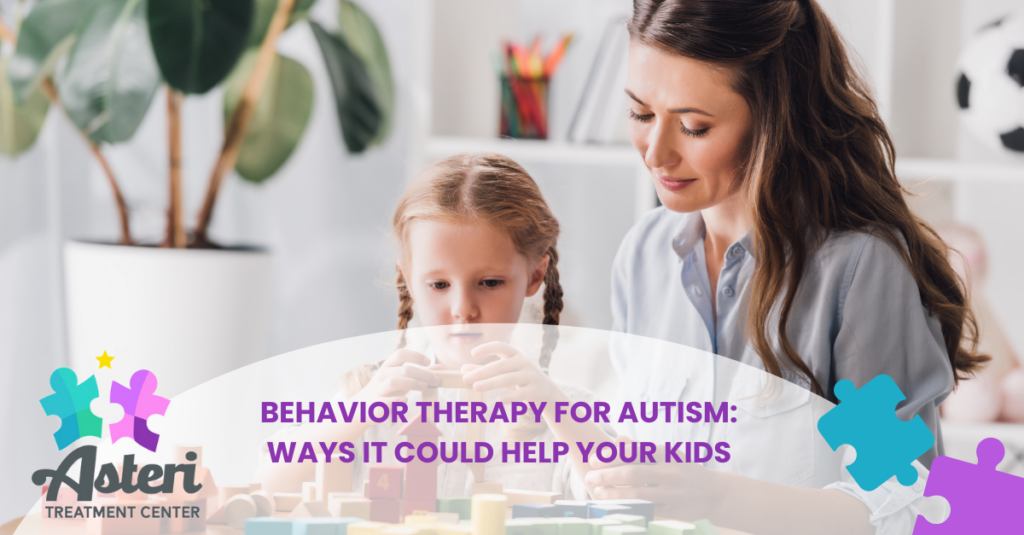For parents of children with autism spectrum disorder (ASD), finding the right support can be life-changing. Behavior therapy for autism is a scientifically validated approach that helps children develop essential skills, reduce challenging behaviors, and improve their quality of life. Here at Asteri Treatment Center, our programs are designed to meet the unique needs of each child, offering structured, evidence-based treatments that foster growth and independence as well as so much more.
Behavior Therapy for Autism Explained
Behavior therapy for autism is rooted in Applied Behavior Analysis (ABA), a methodology that uses positive reinforcement to teach new skills and reduce behaviors that may interfere with learning or social interactions. Unlike a one-size-fits-all approach, our ABA therapy is tailored to each child’s strengths and challenges, ensuring meaningful progress.
The core principle of behavior therapy is understanding how a child’s environment influences their actions. By identifying triggers and reinforcing positive behaviors, we help children communicate more effectively, engage with peers, and navigate daily routines with greater confidence.
How Behavior Therapy Supports Children with Autism
Behavior therapy for autism provides targeted interventions that address core challenges while nurturing essential developmental skills. Our evidence-based approaches go beyond surface-level behavior modification – we focus on creating meaningful, lasting changes that improve daily functioning and quality of life in many ways.
Developing Communication and Language Skills
For nonverbal or minimally verbal children, behavior therapy opens pathways to self-expression through:
Using techniques to teach functional communication, starting with simple requests and progressing to labeling objects and conversational skills
Our therapists carefully assess each child’s current communication abilities and design progressive goals that build toward meaningful interactions with family, peers, and educators.
Enhancing Social Competence and Relationships
Social challenges represent one of the most significant barriers for children with autism. Our behavior therapy systematically addresses:
- Foundational Social Skills: Making eye contact, responding to names, and understanding personal space
- Interactive Play: Teaching turn-taking, sharing, and cooperative play through structured peer sessions
- Emotional Intelligence: Helping children recognize and interpret facial expressions, tone of voice, and body language
- Friendship Building: Coaching children on how to initiate interactions, join group activities, and maintain relationships
We create safe social environments where children can practice these skills with gradual reductions in support as they gain confidence.

Promoting Independence in Daily Living
Behavior therapy equips children with practical life skills through breaking down complex activities like dressing, grooming, and meal preparation into manageable steps.
Additionally, we teach children to monitor and regulate their own behaviors. We work on this not just in a classroom setting, but in public settings like stores, restaurants, and public transportation
These skills directly translate to greater autonomy at home, school, and in the community.
Addressing Challenging Behaviors
Our therapists employ proactive strategies to reduce behaviors that interfere with learning and social participation.
After identifying whether a behavior serves to escape demands, gain attention, access items, or provide sensory input, we develop targeted replacement behaviors
Then, we go about teaching alternative ways to manage frustration, anxiety, or sensory overload through techniques.
Supporting Academic Success
Behavior therapy bridges the gap between learning challenges and classroom success by:
- Increasing Instructional Control: Helping children follow directions, remain on task, and complete assignments
- Adapting Learning Methods: Using specialized prompting and reinforcement systems tailored to each child’s learning style
- Promoting Classroom Participation: Teaching skills like raising hands, waiting turns, and working in groups
- Homework Routines: Establishing predictable after-school schedules to complete work independently
Building Emotional Regulation
Children learn to identify and manage their emotions through:
- Feelings Identification: Using visual aids and social stories to recognize emotional states
- Calming Strategies: Practicing deep breathing, counting, or using sensory tools when upset
- Flexibility Training: Helping children adapt to changes in routine or unexpected situations
- Problem-Solving Skills: Teaching step-by-step methods to handle conflicts or challenges
Progress in one area often leads to breakthroughs in others – as communication improves, challenging behaviors may decrease; as social skills grow, academic engagement often follows.
This interconnected approach ensures that children don’t just learn isolated skills, but develop the foundational abilities they need to navigate their world more successfully. Through consistent, compassionate intervention, we see children transform from frustrated observers to active participants in their own lives.
The Role of Family in Behavior Therapy
Parents and caregivers play a vital role in the success of behavior therapy. Asteri Treatment Center emphasizes family involvement by providing:
- Parent training sessions – Teaching strategies to reinforce positive behaviors at home.
- Regular progress updates – Keeping families informed about their child’s development.
- Home-based support – Ensuring consistency between therapy and daily life.
When parents actively participate, children are more likely to retain and generalize the skills they learn in therapy.
Getting Started with Our Behavior Therapy for Autism
If you’re considering behavior therapy for your child, Asteri Treatment Center offers comprehensive support.
Behavior therapy for autism provides children with the tools they need to navigate the world more effectively. With the right support, they can build confidence, develop essential skills, and lead fulfilling lives. Asteri Treatment Center is committed to helping families in Los Angeles access the highest quality care, ensuring every child has the opportunity to thrive. Call or fill out the form at our site for a free consultation.

